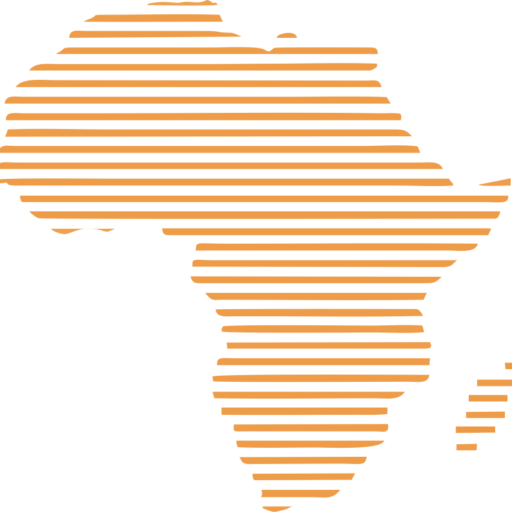
The extractive sector in Africa is one of the fastest growing industries globally, with Africa now accounting for more than 20% of global mining investment. The sector’s growth has been driven by fast-rising commodity prices and increased demand from emerging economies such as China and India.
However, rising costs and regulatory changes have made operating in Africa increasingly complex. This has led to many companies considering how they can improve their competitiveness and sustainability while minimising the impact on communities they operate in. In this context, social impact assessments have become an important tool for mining companies to assess the potential impact on local communities before implementing new projects or making changes to existing operations.
Africa extracts and exports raw materials such as oil, gold, diamonds, cobalt and coltan (a mineral used to make electronic goods). This trade generates revenue that governments use to build infrastructure and develop their economies. Meanwhile private companies often earn large profits through their involvement in this trade. The extractive sector also provides employment opportunities for thousands of people across Africa who work on mines or drill wells for oil companies.
Overview of Investment in the Extractive Sector in Africa
The extractive sector is a major contributor to the African economy. The sector’s contribution to GDP growth has been increasing, and it is expected that further growth will occur in coming years as new projects are commissioned. At the same time, investment in the extractive sector has been increasing and becoming more competitive.
Africa’s extractive industry continues to be dominated by large multinational corporations (MNC). However, there have been notable shifts over time towards increased participation from local companies and governments.
Trends in the overall extractive industry and commodity markets
The extractive sector in Africa is a key player in the global mining industry. Africa has the world’s largest gold reserves, and it is also home to large copper, platinum, and diamond deposits. In fact, Africa is the third largest producer of all three commodities (gold, copper and diamonds), trailing only China and Russia.
Emerging trends in the sector present challenges as well as opportunities for investment by stakeholders who adjust their strategies adequately to adapt to the evolving landscape.
Here are some of these trends:
- Increasing nationalism and new laws: Governments are increasingly taking control of their country’s resources and passing new laws to regulate foreign investors’ activities. Some countries have also been accused of preferring national companies over foreign ones when awarding contracts.
- Growing demand for minerals and metals used in renewable energy production: The overall extractive industry is expected to grow substantially over the next decade, driven by emerging markets, such as Africa and Latin America. In particular, demand for minerals and metals used in renewable energy production is expected to rise sharply. Mining companies have also responded to this trend by making investments in renewable energy sources. A recent report by the United Nations Environment Programme (UNEP) showed that demand for minerals and metals used in renewable energy production will increase by 35% by 2050.
- New technology (Digitization and automation): Digitization and automation have the potential to transform the extractive industry and commodity markets in Africa. The digitization and automation of mining will lower costs, improve safety and reduce the need for large amounts of capital. Digitization will also help to reduce costs by improving operational efficiency and optimising productivity. The oil and gas industry has been the first to experience this transformation. The technology is already available to enable the use of drones for drilling, water injection, and reservoir surveillance. The emergence of artificial intelligence (AI) has also enabled companies to manage their operations remotely using AI-powered apps. Substantial opportunities are abundant for investors seeking to invest in technologies for the extractive industry in Africa as it holds the potential to unleash growth potential for all stakeholders in the space.
- Availability of underexplored mineral resources: The availability of underexplored mineral resources in Africa is a new trend that has implications for the extractive industry and commodity markets. This trend has been spurred by several factors, including improved technology, increased investment in exploration, and greater access to previously inaccessible areas.
- Rising costs: Mining companies need to invest heavily into exploration and production activities for successful operations, but rising costs now make it difficult for them to do so. These costs include labour wages, logistics, security and compliance costs among others.
- Security concerns: In some cases, security concerns have led governments to impose restrictions on mining activities or close off certain areas altogether.
Operating in an environment of Increasing complexity
In addition to fluctuations in commodity prices driven by global socio-economic and political factors, there are a number of other factors that have contributed to the increasingly complex operating environment in which companies now operate. These include:
- Increased competition for capital and acquisitions: The relative scarcity of resources has increased competition among investors, resulting in a greater focus on financial returns and reduced focus on social or environmental impacts. This means that there is an increasing pressure on companies to demonstrate their ability to generate cash flow and return value-added capital at higher rates than they did before the oil price crash (Moyo & Nkomo, 2018).
- Increasingly complex regulatory and social environments: Companies must navigate multiple layers of regulations at national and international levels. In addition, they must also address emerging issues such as climate change adaptation requirements within their existing operations or new ones arising from policies aimed at protecting communities from harm caused by extractive projects (Dodd & Kabeer, 2015; Pickard et al., 2016).
- Increasingly complex supply chains: Companies are exposed not only to risks related directly with their own operations but also those related with those who do business with them through supply chain links across countries or continents depending on where they source most materials used in production processes such as minerals needed for manufacturing purposes such as gold, diamonds and platinum, etc.
These factors create winners and losers in the space. The winners are companies or investors that invest time and resource in understanding the business landscape and regulations in the jurisdictions they seek to operate in by tapping in resource bases and collaborating with experts who have requisite experience and have led organisations to successful execution of projects across Africa.
This is the valuation proposition of Emerging Africa Advisory group (EAAG), an advisory group with a network of professionals with decades of experience leading investment projects across different sectors and jurisdictions in Africa. In this regard, EAAG played an advisory role for an Australian concern in their acquisition of a controlling interest in an African hydrocarbon company which holds a special grant for the exploration of hydrocarbons in respect of the development of resource deposits and the evaluation of the geophysical and geotechnical composition of the mineral resources owned by the target.
Capitalising on Africa’s mineral wealth
African countries are rich in natural resources, and the extractive industry is an important part of the continent’s economy. As a result, Africa has become a hotspot for investment by multinational corporations and other companies.
Africa is home to several of the world’s largest gold mines and diamond mines. The continent also boasts significant deposits of cobalt, bauxite, copper, iron ore, platinum, tin, zinc and more. In fact, according to a report from Ernst & Young (EY), Africa represents about 30% of global reserves of platinum group metals (PGMs).
With climate change, harnessing these resources sustainably to achieve positive social impact is a must and stakeholders in the sector must work with local and regional experts in the space to achieve these outcomes which will be a win for all parties; investors, host communities and the government.
How can mining companies be more competitive?
- Focus on the fundamentals of the business: Focus on core business, customers and people.
- Consider outsourcing non-core activities to third parties like contractors.
- Evaluate your company, product or service in terms of its social and environmental impacts – is it sustainable? How else can we develop our business while maintaining a positive impact on society?
- The key to long-term success is investing in human capital.
To grow and secure a positive legacy, mining companies need to develop executable strategies that build trust, improve employee well-being, and generate value for all stakeholders.
To grow and secure a positive legacy, mining companies need to develop executable strategies that build trust, improve employee well-being, and generate value for all stakeholders.
The extractive sector is an important driver of economic growth in Africa; however, the sector’s sustainability has been questioned since it was identified as one of the top contributors to environmental degradation and poverty over the last two decades.
Conclusion
While the extractive sector is a major contributor to economic growth in Africa, it also faces several challenges. As African governments look to diversify their economies, they need to find ways to attract foreign investment while balancing social and environmental concerns.
The extractive sector in Africa is a massive and growing industry, with significant positive impact on the continent’s investors and social programs. With its relatively low price of entry for investors, high returns on investment, and positive social impact, it’s no wonder that so many companies are looking to get involved with African resources.
